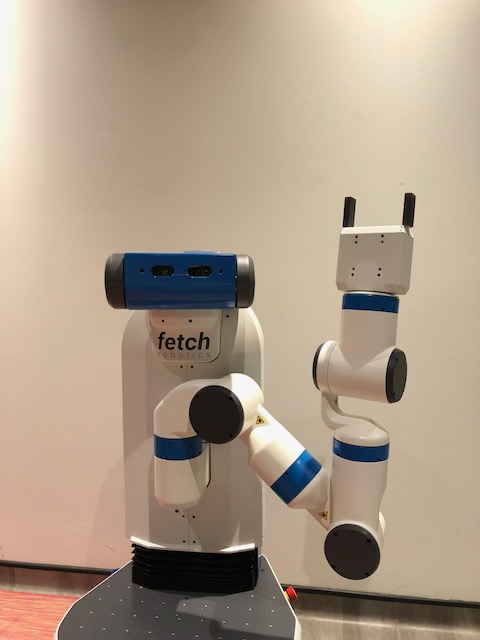Getting to Know One Another: Calibrating Intent, Capabilities and Trust for Human-Robot Collaboration, Joshua Lee, Jeffrey Fong, Bing Cai Kok, Harold Soh, IEEE International Conference on Intelligent Robots and Systems (IROS),2020
Links:
In this paper, we formulate a novel decision-theoretic formulation for calibrating the intent and capability in human robot collaboration. Intent inference is cast as a problem of inverse reinforcement learning (recovering the reward function of an agent given its policy or observed behavior). We explicitly model capability (w.r.t an action) as the likelihood of success when taking that action. We model the Human-Robot Collaboration scenario as a Bayes-Adaptive POMDP, where the intent and capabilities are unknown (latent), resulting in the Trust-Intent-Capability-Calibration POMDP (TICC-POMDP), which is solved using an online approach (TICC-MCP). Results of using this approach in human-subject experiments in a collaborative shopping scenario show higher team performance and higher human trust.
Resources
You can find our paper here. Check out our repository here on github
Citation
Please consider citing our paper if you build upon our results and ideas.
Joshua Lee, Jeffrey Fong, Bing Cai Kok, Harold Soh, “Getting to Know One Another: Calibrating Intent, Capabilities and Trust for Human-Robot Collaboration”, IEEE International Conference on Intelligent Robots and Systems (IROS),2020
@article{Lee_Fong_Kok_Soh_2020, title={Getting to know one another: Calibrating intent, capabilities and trust for human-robot collaboration}, ISBN={9781728162126}, ISSN={21530866}, DOI={10.1109/IROS45743.2020.9340736}, abstractNote={Common experience suggests that agents who know each other well are better able to work together. In this work, we address the problem of calibrating intention and capabilities in human-robot collaboration. In particular, we focus on scenarios where the robot is attempting to assist a human who is unable to directly communicate her intent. Moreover, both agents may have differing capabilities that are unknown to one another. We adopt a decision-theoretic approach and propose the TICC-POMDP for modeling this setting, with an associated online solver. Experiments show our approach leads to better team performance both in simulation and in a real-world study with human subjects.}, journal={IEEE International Conference on Intelligent Robots and Systems}, author={Lee, Joshua and Fong, Jeffrey and Kok, Bing Cai and Soh, Harold}, year={2020}, pages={6296–6303} }
Contact
If you have questions or comments, please contact Joshua.






